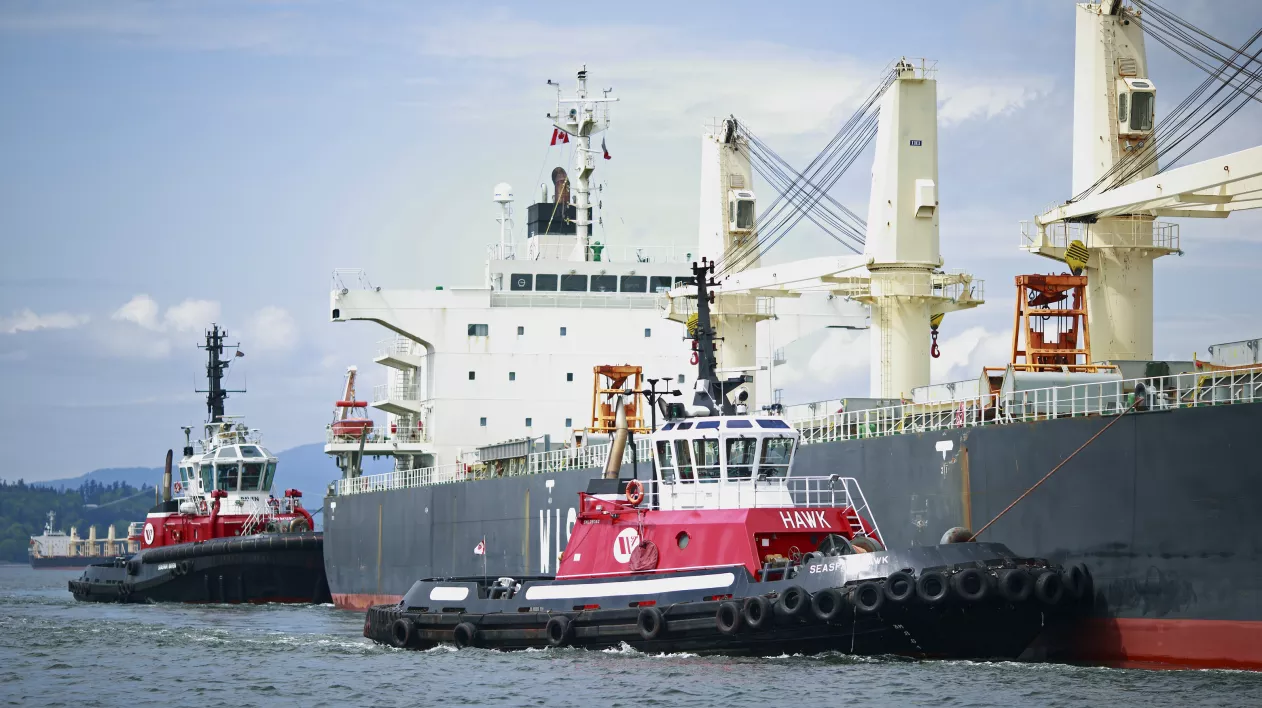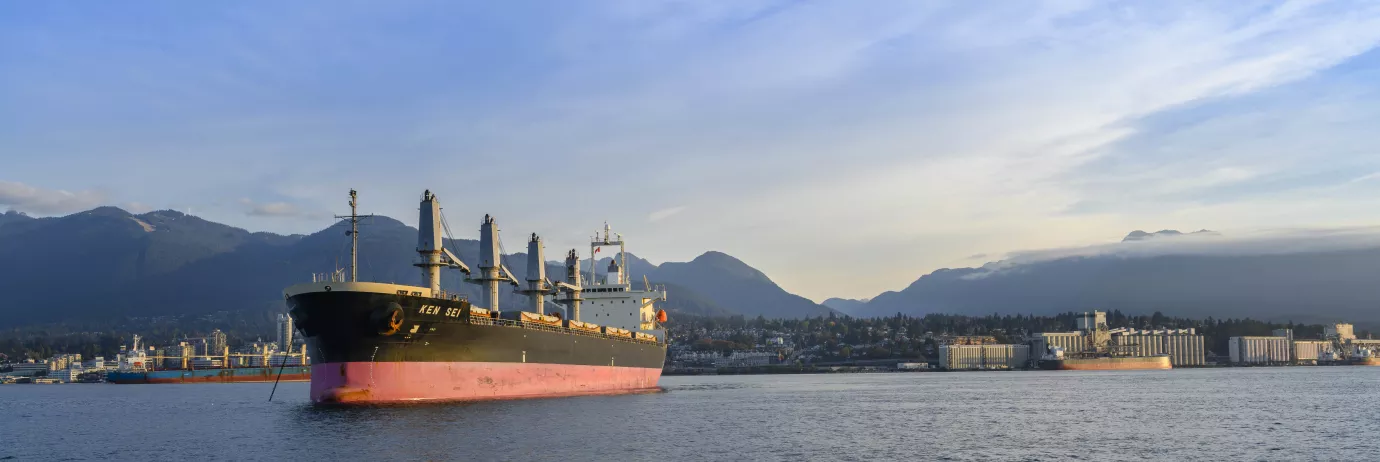
Port Information Guide
All commercial ships and recreational vessels that move within the [ Port of Vancouver’s jurisdiction ] are required to adhere to the practices and procedures outlined in the Port Information Guide. Our responsibility to develop and implement these practices and procedures is outlined in the Canada Marine Act. The Port Information Guide is designed to promote safe and efficient navigation within port waters and to protect the marine environment. All ships that access the port must adhere to the Port Information Guide, including:
- Commercial ships
- Domestic vessels
- Recreational and pleasure craft
- Other port users and tenants
The Port Information Guide is updated regularly to reflect international best practices. Whenever possible, we will provide notice of these updates no less than thirty days before they go into effect. In emergency situations, updates may be made with short notice.

Anchorages at the Port of Vancouver
Within the navigational jurisdiction of the port waterways, the port authority manages commercial ship traffic and the sites where these ships can anchor (called anchorages) while waiting to access a port terminal. Outside of the port’s jurisdiction ships are free to anchor wherever it is safe to do so, per the common law right of navigation. All ships requesting an anchorage at the port are asked to review and agree to the practices and procedures outlined in the [ anchorage code of conduct ].
Southern Gulf Island anchorages
In recent years, demand for deep-sea anchorages around the Southern Gulf Islands has increased due to supply chain and weather-related congestion, and the changing size and dimensions of ships. Because waterways outside of a port authority’s jurisdiction are a federal responsibility, we do not normally have direct influence when it comes to managing ships that may be anchored in those areas outside of the Port of Vancouver. However, in 2018 Transport Canada introduced an interim protocol, asking the Vancouver Fraser Port Authority to assist by assigning anchorages around the Southern Gulf Islands. The interim protocol aims to:
- Balance anchorage usage
- Distribute ships more equitably among these anchorages
- Mitigate impacts and disruptions to communities
The port authority uses an algorithm to assign anchorages equitably, considering the following factors:
- Size of the vessel
- Anchorage use in Vancouver
- Number of days an anchorage has been vacant
- When the anchorage was last used
- Average number of days the anchorage was occupied
Wherever possible, we avoid assigning ships to Gulf Island anchorages. We also ask ship operators to prioritize arriving or departing from these anchorages between 7:00 a.m. and 11:00 p.m. to limit noise disruptions at night. Ship operators assigned to anchorages in this area are asked to follow the same code of conduct as ships within the port’s jurisdiction.
Dredging FAQs
Dredging involves the careful removal of sediment and debris at the bottom of a body of water, such as a river or inlet. Each year when the snow melts, the Fraser River carries millions of tonnes of sediment like silt and sand, depositing some along its route and discharging approximately 20 million tonnes into the ocean each year. If left in the river, this sediment can cause issues such as:
- Clogging the waterway
- Creating navigational hazards
- Impacting marine-related trade
We dredge a deep-sea channel in the south arm of the river every year to carefully remove sediment and dispose of it in the ocean at a designated disposal at sea site or on land for development purposes.
As a Canada Port Authority, we are not obligated to dredge smaller, secondary channels of the Fraser River. However, we are participating in efforts alongside stakeholders and all levels of government to find a long-term, sustainable solution for local, secondary channel dredging that will protect the environment and benefit local communities.
